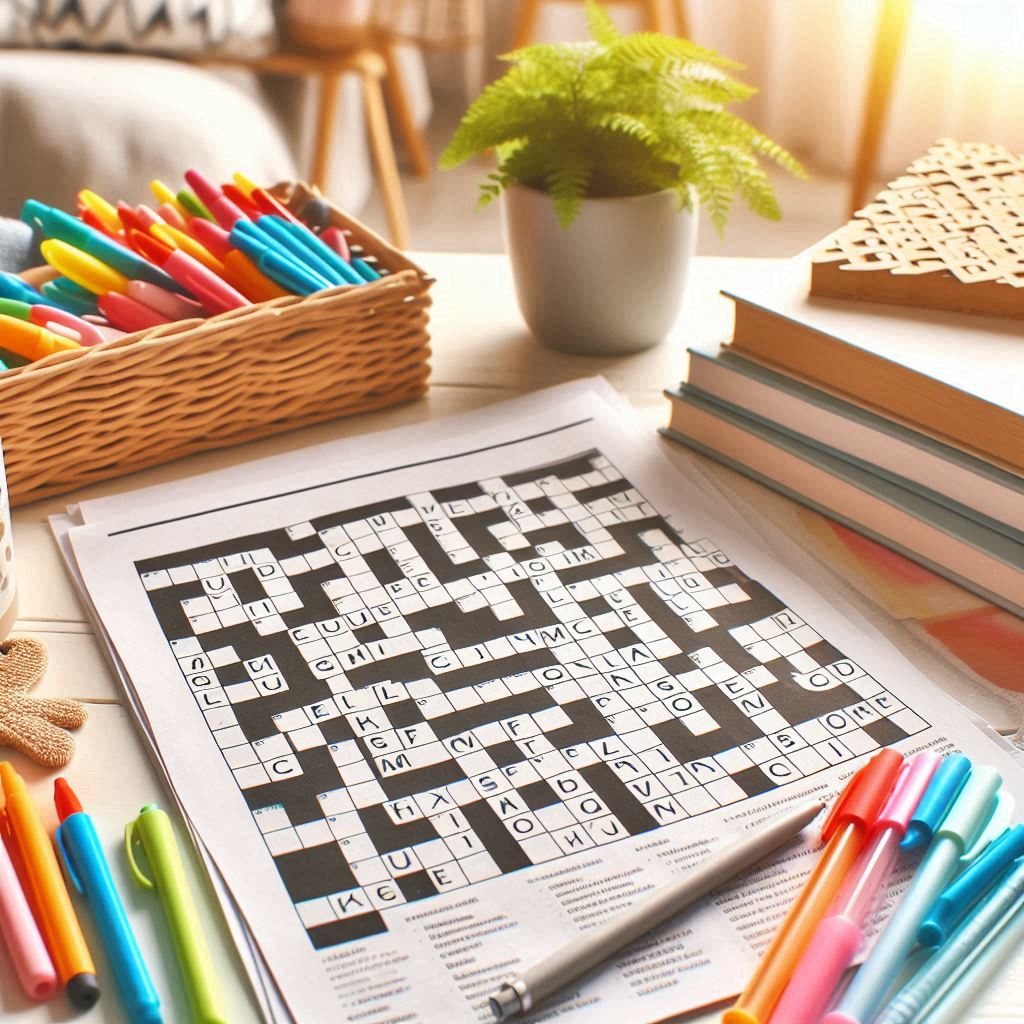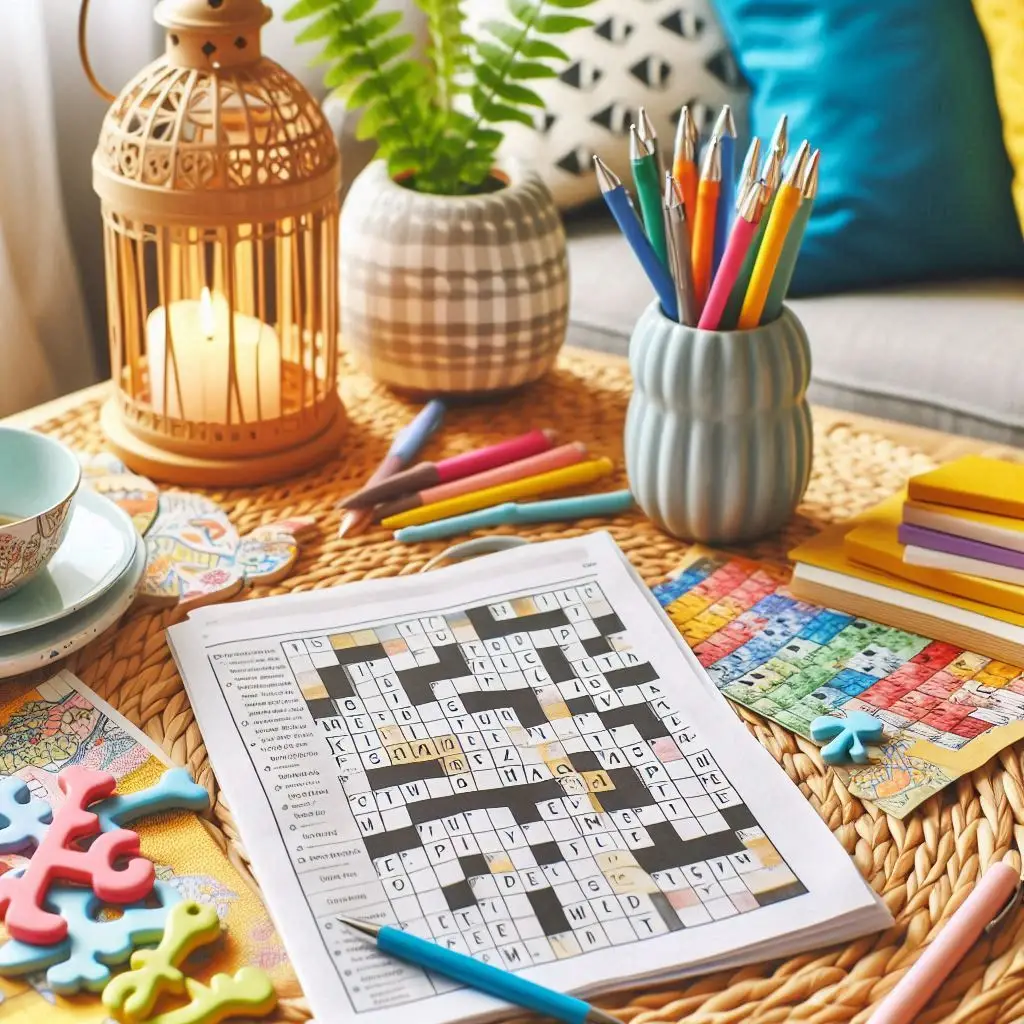Using easy crossword puzzles as part of cognitive therapy has become a popular method to support mental agility, memory retention, and overall brain health. These puzzles engage multiple cognitive processes, making them suitable for patients recovering from neurological conditions, aging individuals, or anyone looking to maintain sharp mental skills. Here are five key points highlighting the benefits and strategies of using easy crossword puzzles in cognitive therapy.

1. Enhances Memory and Recall
Easy crossword puzzles require solvers to recall words, definitions, and concepts from memory. This exercise strengthens both short-term and long-term memory, making it an effective cognitive therapy tool.
Strategy:
- Start with puzzles that use familiar words or topics to build confidence.
- Gradually introduce slightly more challenging vocabulary to stimulate memory recall.
- Encourage repeating previously completed puzzles to reinforce retention.
Impact:
Memory exercises through easy crossword puzzles help patients maintain cognitive function and improve their ability to retrieve information efficiently.
2. Stimulates Problem-Solving Skills
Solving crossword puzzles involves analytical thinking, pattern recognition, and deduction. Easy crossword puzzles promote problem-solving skills without overwhelming the solver.

Strategy:
- Use clues that encourage logical reasoning or synonyms.
- Allow discussion of strategies for tackling difficult words, especially in group therapy settings.
- Focus on the process rather than speed to reduce pressure and encourage engagement.
Impact:
Engaging in problem-solving activities through easy crossword puzzles improves mental flexibility, decision-making, and critical thinking skills.
3. Reduces Stress and Anxiety
Cognitive therapy benefits not only from mental exercises but also from activities that reduce stress. Easy crossword puzzles provide a calming, structured activity that helps individuals focus and relax.
Strategy:
- Offer puzzles with simple, clear clues to avoid frustration.
- Encourage solving at a comfortable pace, either individually or in groups.
- Use colorful grids or digital versions to make the activity visually appealing and soothing.
Impact:
Stress reduction enhances overall cognitive performance, making easy crossword puzzles a therapeutic and enjoyable part of mental health routines.
4. Supports Language and Vocabulary Development
Even for individuals recovering from cognitive impairments, engaging with words strengthens language skills. Easy crossword puzzles encourage correct spelling, word recognition, and comprehension.
Strategy:
- Choose puzzles that reinforce commonly used words or therapy-related vocabulary.
- Introduce themed puzzles to focus on specific concepts or areas of interest.
- Review answers together to reinforce learning and comprehension.
Impact:
Regular engagement with easy crossword puzzles supports communication skills and enhances cognitive-linguistic abilities.
5. Promotes Consistency and Motivation in Therapy
Structured, enjoyable activities like easy crossword puzzles motivate individuals to participate regularly in cognitive therapy sessions. Consistency is critical for meaningful improvement.
Strategy:
- Integrate puzzles into daily or weekly therapy routines.
- Use progress tracking to celebrate milestones and encourage continued effort.
- Combine puzzle-solving with other cognitive exercises for a holistic therapy plan.
Impact:
Consistency in mental exercises through easy crossword puzzles enhances neuroplasticity and overall cognitive resilience, making therapy more effective and engaging.
Easy crossword puzzles are a versatile and effective tool for cognitive therapy. By enhancing memory, stimulating problem-solving, reducing stress, supporting language development, and encouraging consistent practice, these puzzles provide measurable benefits for brain health.
Integrating easy crossword puzzles into cognitive therapy routines creates an engaging, enjoyable, and therapeutic activity that supports mental agility, reinforces learning, and motivates individuals to actively participate in their cognitive development.